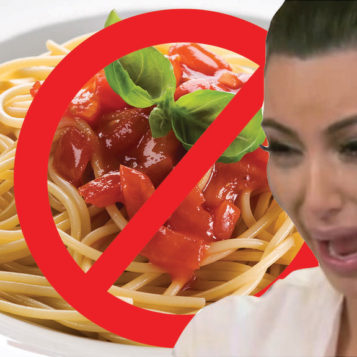Experts of healthy meals delivered explain one of the more popular trends in the weight loss industry which is the “Low Carb” approach. Some people default to it the minute they attempt to diet. Who can blame them? In many cases, people are socially conditioned to think that “Low Carb” products are simply better for weight loss. However, to validate such claims, we would need to look at facts. Unfortunately for the anti carb zealots, the evidence simply doesn’t support the recommendation to avoid or cut carbs out from your diet for weight loss.
From 2008 to 2013, the number of new products carrying low carb claims nearly doubled in Europe. In Australia, people have spent approximately $327 million per year on weight loss products alone. This includes “Low Carb” options which are the clear leader in sales within these products. We have an abundance of product availability in the low carb space to the point where it’s excessive. Almost everything has a low carb alternative these days, shakes, protein bars, meal replacements.
So if carbs are so bad, and low carb is the proposed solution that supposedly “works best”, WHY is the obesity problem growing?
The growing obesity problem simply cannot be attributed to a single macronutrient (which ironically is necessary to our survival). It’s a combination of many different factors which continue to cause it, and as such it takes many different factors to resolve it. A holistic approach needs to be taken, and overall lifestyle factors have to be reviewed. Using carbs as a scapegoat is not only ignorant, it’s also counterproductive to the goal of weight loss.
Let’s review and put to rest some of the more popular claims made by the common carbophobe

Insulin
There’s a common misconception that insulin immediately causes weight gain. The most popular myth is that a high carb diet leads to chronically high insulin levels. The simple fact is that insulin is only elevated during the time after a meal in healthy individuals. It’s also worth mentioning that all macronutrients stimulate insulin production including protein, so the simple fact of eating will elevate insulin levels temporarily.
Insulin is not the only driver of fat storage. Your body can store and synthesize fat even when insulin is low. Even if you’re on a low carb diet eating lots of dietary fat, you cannot lose fat if you are overconsuming calories.
One of the roles of insulin is to signal the cells to take glucose from the blood. Insulin is one of the most potent physiological anabolic agents, so attempting to keep it from producing is counterproductive to building muscle, which is counterproductive to optimising your metabolism and losing fat.
So given the above points, it’s time we relax about insulin.
http://www.ncbi.nlm.nih.gov/pmc/articles/PMC1431367/

Glycaemic Index (High and Low GI)
One of the biggest issues with the low vs high GI discussion is that the data supporting its validity is inconsistent at best. In fact, the only way scientists can replicate the results are established by testing each food in isolation. Fortunately, we don’t eat these foods in isolation, we generally eat them as part of a meal. When different foods (with different macros) are combined in a meal, their GI values change significantly.
In other words, if you’re not a diabetic, eat a balanced diet and create an energy deficit, you can relax knowing that you’re doing the most you can to get “optimal” results without stressing too much about the GI in your food.
References: http://www.phlaunt.com/diabetes/22168291.php
http://ajcn.nutrition.org/content/87/1/223S.full
http://www.ncbi.nlm.nih.gov/pubmed/16177201/

Gluten
There are some who attempt to minimize carbohydrate consumption because of a fear of gluten intolerance. Unless you suffer from celiac disease, you likely have nothing to worry about. A lot of people also unfortunately confuse FODMAP intolerance with gluten intolerance, and there is a huge difference between the two.
http://www.sciencedirect.com/science/article/pii/S0016508513007026

Sugar
Using sugar as a scapegoat for society’s decline in health is convenient, but it’s reputation is somewhat undeserved. There’s a lot of fearmongering and alarmism that goes on around sugar. While there is validity in arguing that society has a problem with an over availability of highly processed high calorie low nutrient products, the issue cannot solely be blamed on sugar.
Fructose, unlike glucose and sucrose doesn’t stimulate an insulin or leptin response on its own, which means it doesn’t blunt your appetite. But in context, this means that you would have to find and consume a product that doesn’t contain glucose as well for that to be relevant. Generally speaking, products with sugar have a combination of a few different sources of sugar in it.
At the end of the day, sugar is safe (Fructose and HFCS included) is safe in certain dosages, and the real issue is overconsumption (generally speaking up to 50g per day is considered ok) but it’s best to focus less on an exact number, rather look towards managing energy balance whilst keeping the bulk of your diet to be from wholefoods and minimally refined foods.
References: http://www.alanaragonblog.com/2010/01/29/the-bitter-truth-about-fructose-alarmism/
http://fitnessbaddies.com/your-problem-with-sugar-is-the-problem-with-sugar/

The Bottom Line
Unless you suffer from a specific condition, there is no reason to avoid carbohydrates, or turn to a low carb diet unless it suits your personal preference.
In fact, consuming carbohydrates as part of your diet will help optimise hormone production such as leptin and regulate ghrelin. Ultimately, you will lose weight if you are in a calorie deficit. To make sure that you’re getting as close as possible to your daily nutrient requirements, the bulk of your meals should be well balanced. That is, you need to have some protein, carbohydrates, fat and fibre in your meals where possible.
-Paolo
Don’t forget to order My Fitness Kitchn’s fitness meals that are delivered in Sydney. Most of our meals come with the option to choose from rice or just veggies to meet your personal carb preferences.
Website – http://www.athleticiq.com.au
Facebook – http://www.facebook.com/AthleticIq


